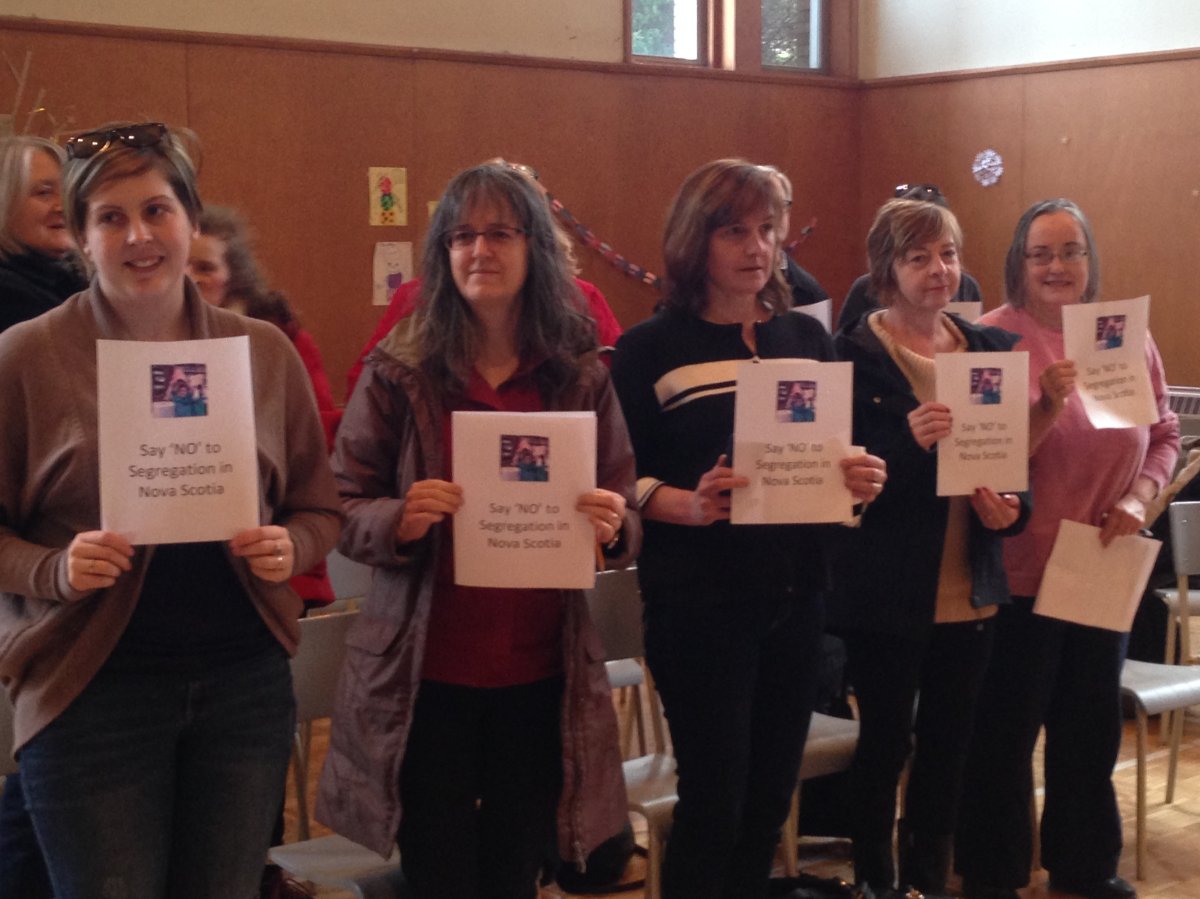HALIFAX – A group representing parents of children with intellectual or physical disabilities spoke out on Wednesday against a recommendation that they say, if adopted, would discriminate against their children.

The recommendation was included in the Report of the Minister’s Panel on Education, released back in October. According to the report, the province’s inclusive education model is not working.
“Under current circumstances, it would appear that neither students with special needs nor their peers are being served well by the model in its current state,” reads the report, which recommends the creation of “a range of learning environments for students with special needs, including congregated classes.”
Advocating Parents of Nova Scotia calls that segregation, and the group is now urging the province’s education minister to reject it.
“We’re appalled by the recommendation to set up congregated settings, it seems that they’re inferring that children with different learning styles are in some way causing the problem in the school system,” said Alice Evans, the groups’ education spokesperson.
Donna Murphy is the president of People First Nova Scotia. She says she experienced segregation growing up, and says that led to bullying. Murphy worries other special needs children will share in that experience if they’re put in congregated classes.
“They’re going to be put in different classrooms and will be labelled ‘that’ class and ‘those’ people and it goes right back to the R word,” said Murphy.
- Posters promoting ‘Steal From Loblaws Day’ are circulating. How did we get here?
- Canadian food banks are on the brink: ‘This is not a sustainable situation’
- Video shows Ontario police sharing Trudeau’s location with protester, investigation launched
- Solar eclipse eye damage: More than 160 cases reported in Ontario, Quebec
Katelyn Isenor is a community spokesperson with SCRI Society, an organization that runs programs and activities that are accessible to people who have disabilities, special needs or difficulties with learning or communication. She says she was able to do a lot in school, and much more since then, because she was included in the education process.
“Any different people, like I am, they can’t be in the same room, because they need to learn new things, they need to be in different classes, like I did, I’ve been in different classes in school, so my experience is that I love school and I think other people should love school too,” said Isenor.
Advocating Parents of Nova Scotia says such an exclusion would also go against the UN convention on the rights of persons with disabilities. They’ve started a petition, which already has more than 500 signatures and have asked to meet with Karen Casey, the province’s education minister.
Casey wasn’t available for an interview on Wednesday but provided this statement to Global News:
“The Minister’s Panel on Education report was based on the feedback of more than 19,000 Nova Scotians and inclusion was identified as one of seven key themes. The report shows that there is widespread support for the province’s model of inclusive education, however, it is not working in its current form. The department is now working on an action plan for change, which will be released in January 2015.”




Comments